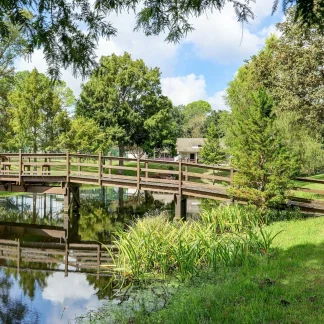The Orchard On The Brazos Recovery
Wallis, Texas, 2548 Aylor Road, 77485
Available Programs
- Open beds : 10
- Total beds : 20
About this Facility
Nestled on 135 acres of river-front property, The Orchard on the Brazos is a co-ed, residential addiction treatment facility with all private bedrooms. Our treatment staff has over 100 years of combined experience and our medical team is comprised of experts that specialize in treating addiction. We aim to be your home away from home.
The Orchard on the Brazos Recovery is a co-ed, in-patient drug and alchohol rehabilitation facility located in Wallis, TX, 40 miles southwest of Houston. Our leadership team is very keen on maintaining a large clinical staff to client ratio, as we feel it’s necessary in order to truly individualize our resident’s treatment plans. We also do all we can to cultivate a ‘home-away-from-home’ feel to our facility and as such, every room we have is single-occupancy, private bedrooms with comfortable queen-size beds. We have a full medical detox with 24-hour nursing staff. Unlike most treatment centers that contract-out for Board Certified Addiction MD’s, Dr. Clay Brown is our in-house Medical Director. He is on site seven days a week, availing himself when needed and making sure all resident’s are comfortable and receiving the necessary medical attention throughout their stay. We also employ the help of both an in-house psychologist and psychiatrist to meet individually with each resident once per week.
We are situated on a beautiful 130 acre tract of land, providing abundant space for healing. Walking trails surrounded by giant oak trees are throughout the property. Clients will stay in one of the six custom built homes on the banks of the Brazos River. Each home is designed to bring the beauty of the surroundings in, with floor to ceiling windows and outdoor living space.
We believe that a tranquil environment is essential for those healing from their addictions. With serene walking trails overlooking the banks of the Brazos River, residents are able to connect with nature while reconnecting with themselves.
About an hour outside of Houston, experience a quiet, calming atmosphere and fresh air away from the stress of the city. Our spacious grounds provide ample opportunity to meditate and reflect as you progress in your recovery journey. Whether overlooking the water or taking in the sunrise behind the trees, there is something for everyone to enjoy at the Orchard on the Brazos.
Recovery starts from the inside out. As part of our program at The Orchard, we provide top-class meals prepared by our onsite executive chef. Residents will also have access to our brand new, state of the art on-site fitness facility. We believe that it’s important to create healthy habits that will continue beyond treatment. The gym will offer cardio equipment, strength training, TRX systems, yoga classes, group fitness classes and trainer created workouts for our residents. Along with our gym, we have two full sized tennis courts, miles of walking trails, a basketball court, a large swimming pool and a stocked pond for fishing on the property.
The Orchard on the Brazos Recovery has developed a unique substance abuse treatment plan coined the Three Pillars Approach which is designed to allow each patient to return to their lives fully prepared for success. The Three Pillar Approach focuses on recovery, spiritual exploration, and re-integration. Our treatment philosophy is one of attraction rather than promotion and as such, we strive to treat our residents like adults. We place an emphasis on a tight-knit community of like-minded residents and staff who all share the same goal of living an abundant life in recovery. We are 12-step based, but we also incorporate a curriculum around finding purpose and meaning in one’s life and letting it become the driving force behind the resident’s “why?”.
Contact us for more information: (979) 627-5526

Contact The Orchard On The Brazos Recovery
Connect with The Orchard On The Brazos Recovery by calling their admissions team directly.
(979) 627-5526 Website Get Directions